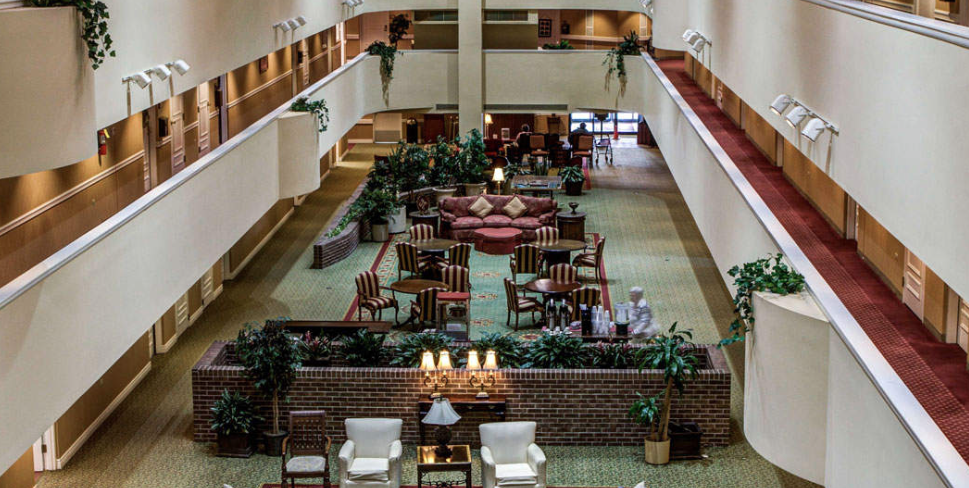Understanding your options is a key first step in selecting senior living accommodations that work best for your needs. After laying the groundwork by answering initial questions related to your needs, you can begin to dive deeper into the types of communities that are available. One such type: Life Plan Communities.
While most people have some knowledge about the three main types of senior living accommodations—Independent Living, Assisted Living, and Memory Care—fewer people understand Life Plan Communities. The following aims to explain what these communities are and answer a plethora of other associated questions.

WHAT IS A LIFE PLAN COMMUNITY?
Life Plan communities provide a spectrum of senior living services that can evolve as the senior ages and his or her care needs change. They provide a variety of senior housing options to meet these evolving needs of residents and promise inclusive, full-range offerings.
The aim of this type of community is to enter a community when health is fairly good and stay with the same community indefinitely. This means that these communities are a combination of all residential and care options. Life Plan Communities are designed to incorporate all three types of senior living categories and then support all stages of seniors’ lives. A phrase sometimes tied to these communities is “aging in place.”
WHAT IS THE DIFFERENCE BETWEEN CONTINUING CARE COMMUNITIES (CCRC) & LIFE PLAN COMMUNITIES?
The two words are synonymous. Continuing Care Communities was the common name for these communities for many years, and it is often still used. In 2014, a national task force was established to revisit this name and evaluate effectiveness of this title. After much evaluation, Life Plan was assigned.
WHAT DO THESE COMMUNITIES OFFER?
Life Plan Communities offer a range of healthcare and supportive services. Healthcare services often include: Nursing, social work, physicians, pharmacy, and therapists. Because these communities service the entire continuum of care, they are also able to provide assistance with insurance claims and things like wellness programs. Outside of healthcare services, they can also offer meals, transportation, housekeeping and more.

These communities also offer the opportunity for socialization. Most seniors who enter these communities are in fairly good health at the time of entry. Often, seniors only need help with small tasks such as meal prepping or transportation when they first move into the community. This offers residents the opportunity to meet friends and community members while they are relatively healthy. Together, Life Plan Community members can take part in social activities like dancing and games.
When a senior’s health deteriorates in any way, Life Plan Communities have the services and spaces available to transition the senior into another type of care without relocating geographically outside the community’s campus.
WHAT MAKES THESE COMMUNITIES UNIQUE?
There are many levels of appeal and points of differentiation to these communities. One is the upscale nature of the facilities, which includes picturesque surroundings, living spaces that are more elegant than in other senior communities, and the fact the entire continuum of care is usually housed on one “campus.”
HOW MUCH DO THESE COMMUNITIES COST?
These communities are paid for out-of-pocket by the senior and/or his or her family. Costs can include an entry fee and/or a monthly fee. Entry fees for studios range from $40 to $90K. Entry fees for larger, two-bedroom homes can range from $200 to $300K or more. Monthly costs usually range from $1,500 to $5,000. However, higher-end communities can cost more. Although entry fees are expensive, families generally receive 50-90% of the entry fee back upon the senior’s passing.
IS THERE AN APPLICATION PROCESS?
Seniors must qualify for these communities through an application process. This application requires thorough financial and medical history information. Since joining the communities is a considerable financial commitment on both sides, the evaluation process can be quite detailed. The communities must ensure they have enough room in their assisted living and memory care facilities as the independent living residents age.
WHAT TYPE OF PAPERWORK IS SIGNED?
Unlike with other senior living categories, Life Plan Communities require a legal process and contract. After qualification, the community and senior enter into a formal business arrangement for time-commitment and rental or purchase of living space. Though this is involved process, remember that a large part of the entry fee is returned to the family down the road. As with all legal agreements, attorneys are often involved in this process.

WHAT TYPE OF ACCREDITATION DO LIFE PLAN COMMUNITIES HAVE?
The vast majority of Life Plan Communities are not reimbursed by Medicaid or Medicare. Therefore, there is no mandated federal requirement for accreditation. However, many communities seek independent accreditation. All such accreditations come from the American Association of Homes and Services for the Aging. This Washington, DC organization promotes a set of standards that ensure the financial stability of and quality of care offered by Life Plan Communities.
WHEN SHOULD PLANNING TAKE PLACE?
Due to the long-term nature of Life Plan Communities, it is important to start planning when seniors have physical and cognitive health. This is also important because the communities aim to first support and get-to-know seniors in their active years and then support health changes down-the-road.
—
Because of to financial realities, these communities are not for every senior. However, for those seniors who are financially able, Life Plan Communities can be superb fits. For more information on specific communities – such as the Life Plan Community , please visit LivingPath.com.



